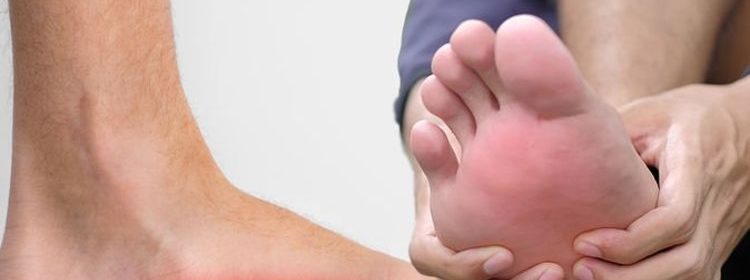Vitamin B12 deficiency symptoms: The ‘feeling’ in your feet that can signal low B12 levels

This Morning: Guest reveals symptoms of vitamin B12 deficiency
We use your sign-up to provide content in ways you’ve consented to and to improve our understanding of you. This may include adverts from us and 3rd parties based on our understanding. You can unsubscribe at any time. More info
Vitamin B12 performs many important roles in the body, such as helping to make red blood cells, nerves and DNA. Becoming deficiency in B12 can therefore launch an assault on the body. Many of the symptoms are subtle and take the form of particular sensations.
According to the Winchester Hospital, a feeling of pins and needles in the feet or hands can signal low B12 levels.
Another telltale sensation may show up on your tongue.
As the Winchester Hospital explains, “a stinging feeling on the tongue” can signal B12 deficiency.
Other warning signs include:
- Weight loss
- Tiredness
- Pale skin colour
- Changes in the way things taste
- Confusion
- Mood changes
- Balance problems, especially when in the dark
- Lightheadedness when changing to standing position
- Rapid heartbeat.

How to respond
According to the NHS, you should see a GP if you’re experiencing symptoms of vitamin B12 deficiency.
“These conditions can often be diagnosed based on your symptoms and the results of a blood test,” explains the health body.
It’s important for vitamin B12 or folate deficiency to be diagnosed and treated as soon as possible.
“Although many of the symptoms improve with treatment, some problems caused by the condition can be irreversible if left untreated,” warns the NHS.
DON’T MISS
High cholesterol: Three sensations in your feet [INSIGHT]
How to live longer: Simple and free daily habit [TIPS]
Menopause: 7 foods to avoid [ADVICE]
What causes B12 deficiency?
There are two primary causes of B12 deficiency – pernicious anaemia and diet.
Pernicious anaemia – the most common cause of vitamin B12 deficiency in the UK – causes your immune system to attack the cells in your stomach that produce intrinsic factor, a protein that helps the body to absorb vitamin B12.
Some people can develop a vitamin B12 deficiency as a result of not getting enough vitamin B12 from their diet.
According to the National Institutes of Health (NIH), vitamin B12 is naturally present in foods of animal origin, including fish, meat, poultry, eggs, and dairy products.

People strictly adhering to a vegetarian or vegan diet are therefore at a higher risk of B12 deficiency.
“In addition, fortified breakfast cereals and fortified nutritional yeasts are readily available sources of vitamin B12 that have high bioavailability,” explains NIH.
How to treat B12 deficiency
The treatment for vitamin B12 or folate deficiency anaemia depends on what’s causing the condition.
Most people can be easily treated with injections or tablets to replace the missing vitamins.

Vitamin B12 deficiency anaemia (low red blood cell count) is usually treated with injections of vitamin B12.
There are two types of vitamin B12 injections:
- Hydroxocobalamin
- Cyanocobalamin.
“If your vitamin B12 deficiency is caused by a lack of the vitamin in your diet, you may be prescribed vitamin B12 tablets to take every day between meals,” explains the NHS.
“People who find it difficult to get enough vitamin B12 in their diets, such as those following a vegan diet, may need vitamin B12 tablets for life.”
Source: Read Full Article